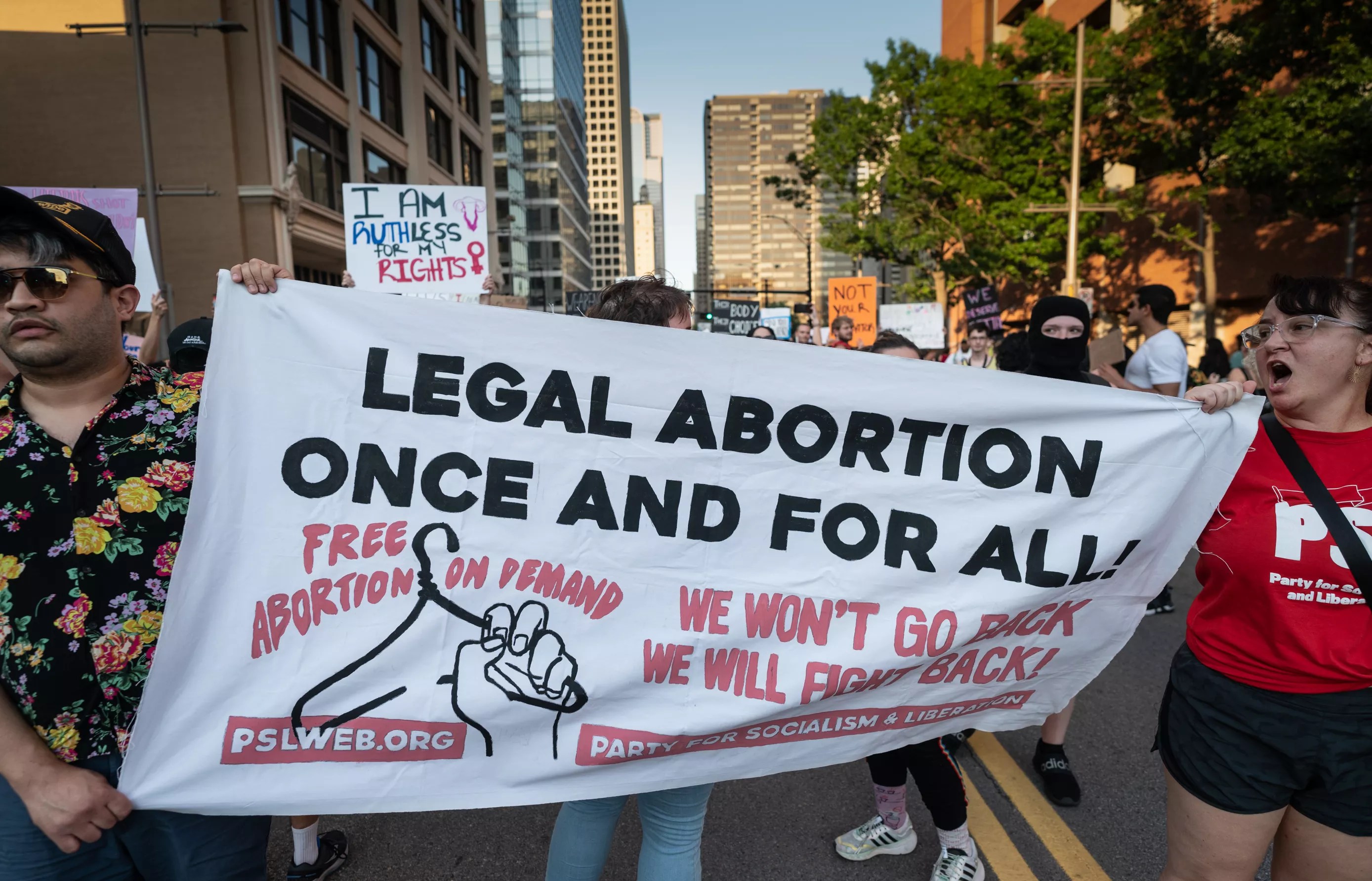
Mike Brooks

Audio By Carbonatix
In December, Texas Attorney Gen. Ken Paxton won a lawsuit against a New York physician who prescribed abortion-inducing drugs via telehealth to a woman in Collin County. Now, experts say the law that allowed the suit poses a danger to everyone.
“People that face the most risk are the actually the kind of non-sophisticated people,” said Southern Methodist University law professor Joanna Grossman. “Not the New York doctor who’s trying to make sure abortion is accessible and not the person shipping abortion pills [overseas], but the random friend who’s like, ‘I’m going to Colorado, I could just get you some abortion pills.'”
Paxton sued Dr. Margaret Daley Carpenter, founder of the Abortion Coalition for Telemedicine, for violating Texas law. The provider was offering workarounds to restrictive abortion laws in Southern states, but providing a Texan with abortion-inducing drugs by courier, delivery or mail service has been illegal since the passage of Senate Bill 4 in 2021.
“In Texas, we treasure the health and lives of mothers and babies, and this is why out-of-state doctors may not illegally and dangerously prescribe abortion-inducing drugs to Texas residents,” Paxton said in a press release following his victory.
The bill targets manufacturers and suppliers of abortion-inducing drugs and the physicians prescribing them, but according to Grossman, nothing is stopping the state from also charging less informed people. The Texas Heartbeat Act, or Senate Bill 8, outlawed abortion after a fetal heartbeat is detected, and a provision of the bill allows private citizens to sue anyone who aids and abets in the process of procuring an abortion.
“There haven’t really been any lawsuits for the most part under SB8,” she said, although there have been a few. “Would that work? We don’t know, but the language would seem to support that. I think the people facing legal risk are the people again either helping somebody or the ones mailing the pills.”
After mailing abortion-inducing drugs became illegal, at least according to Texas, the state made it a felony to obtain a medical abortion after seven weeks of gestation. With few remaining options in Texas, women have turned to overseas organizations and out-of-state doctors illegally prescribing the pills.
“It’s not the sophisticated industry-level people [at risk], it’s the friends,” said Grossman.
Grossman says the organizations know that prescribing the pills violates Texas law, but they just do not care.
“What you’re seeing in abortion ban states is that most of the distribution of pills is coming from either doctors in states with abortion shield laws or from abroad, like Aid Access, from people who don’t care whether they’re violating Texas Law because they’re never coming to Texas and Texas can’t do anything about it,” she said.
A Texas district judge imposed a $100,000 penalty fee and additional court and lawyer fees against Carpenter, but New York shield laws have stalled the process. Shield laws, established in 23 states and the District of Colombia, protect abortion providers from interstate prosecution and legal action, allowing physicians to provide care to out-of-state patients in person and via telehealth. The Empire State will not force Carpenter to comply with Texas court orders.
Louisiana is charging Carpenter with a felony for providing abortion-inducing drugs to a minor. The doctor prescribed the drugs to a 39-year-old mother who then gave the pills to her teenage daughter. The state is charging both Carpenter and the girl’s mother. If convicted, the doctor would face up to 15 years in prison, but because of shield laws, New York Gov. Kathy Hochul has refused Louisiana Gov. Jeff Landry’s extradition requests.
Carpenter was caught in Texas and Louisiana when the women she prescribed the pills to became ill and had to seek hospital attention. The most commonly used abortion-inducing drugs are a combination of mifepristone and misoprostol, taken 48 hours apart. The pills have been used widely since they were approved by the FDA in 2000, but when taken incorrectly, they can cause serious side effects that require immediate medical attention.
As of right now, no individual who is not a physician or a member of an interest group has been sued for providing someone with an abortion pill. A Galveston man attempted to sue a woman who helped his ex-wife obtain an abortion, but the case was dropped before it went to trial. Grossman still says that anything is possible.
“I guess in Texas, I don’t believe that they will go that far,” she said. “But I actually didn’t believe we would get where we are now either.”
A self-induced abortion is not a crime in Texas, and the women who obtain one cannot be charged, though some lawmakers have tried to change that.
“Never say never,” said Grossman. “It has been the case for a long time that abortion bans never punished the woman getting the abortion. Because, in part, she was viewed as a victim.”
Some lawmakers are shifting the narrative of women who obtain abortions as “victims” and reverting to the historic equation of the procedure with murder. A former state representative, Bryan Slaton, previously filed a bill that would charge women who had an abortion with homicide, potentially allowing them to face the death penalty, but the bill failed to pass. Similar bills have been filed in other states with equally restrictive abortion laws, but none have been successful. Grossman says it’s unlikely women who obtain abortions will ever face prosecution, but ultimately, it’s unpredictable.
“The problem is it just takes one crazy person to introduce the bill and then a series of sort of hard-to-predict events,” said Grossman. “Sometimes the bill advances even though it seems improbable.”